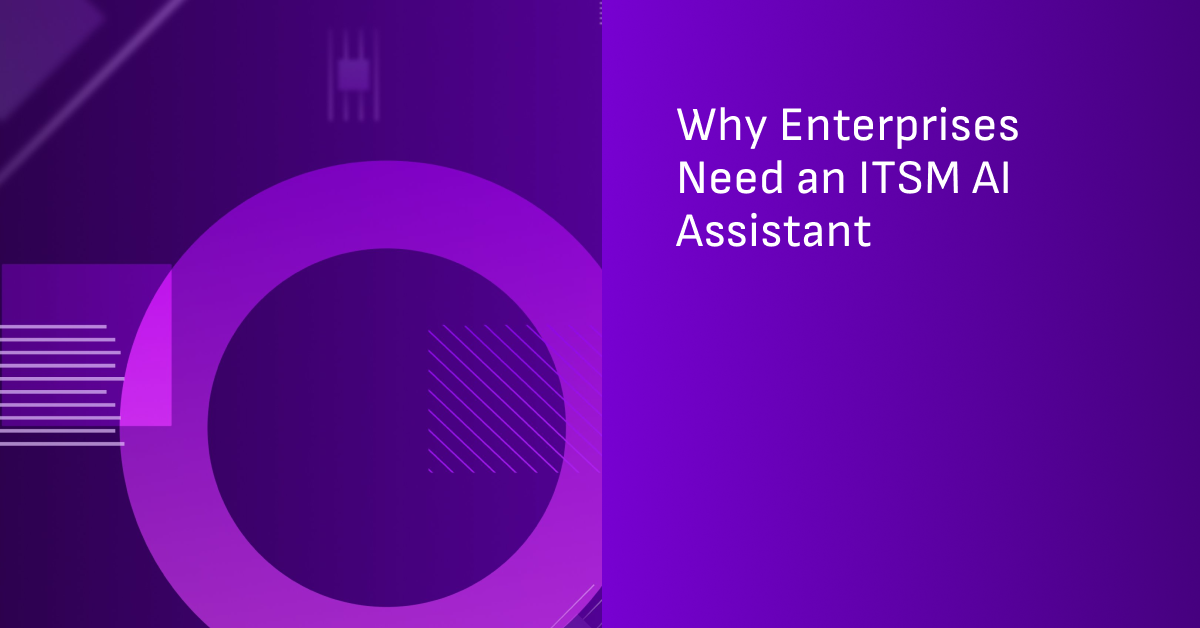Even your most efficient employees waste time — and it’s not their fault.
A study from Harvard Business Review reveals the simple action of toggling between different apps and websites costs the average employee four hours per week. By the end of the year, that’s five full work weeks spent switching tabs.
That’s a lot of wasted time.
Inefficient knowledge management creates a ripple effect: every time an employee has to ask someone else for information, more people get caught up wasting time looking for resources. Worse, if an employee takes action based on outdated resources, it can lead to serious mistakes that impact your business’s bottom line.
A knowledge base with self-service options can help you reduce all these inefficiencies by empowering your employees with instant access to more accurate, up-to-date information — without needing to file a support ticket.
What is a self-service knowledge base?
A self-service knowledge base is a centralized hub of information and resources that is designed for users to independently search and resolve their queries, without needing direct assistance from support staff.
Self-service knowledge bases have user-friendly interfaces so that your employees can quickly find the information they need, whether it’s an article, FAQ, or how-to guide. They often use artificial intelligence (AI), advanced search capabilities, and automated assistance to help employees quickly find personalized answers and resolve issues independently.
Self-service knowledge bases can use advanced AI to answer questions in real time and surface relevant content based on the employee’s intent, role, department, or other context.
Here’s what that looks like in practice:
An employee isn’t sure how to update their direct deposit information.
They search in the self-service portal for help, using natural, everyday language.
The AI-powered self-service knowledge base interprets the employee’s query — and instantly provides a how-to guide on updating pay details.
The employee uses the guide to update their information, without having to contact HR or filing a ticket.
Learn about the 5 best practices to follow for a better knowledge base.
Benefits of employee self-service
When done right, employee self-service tools can do more than just save time. They are able to improve employee satisfaction, ease support staff’s workloads, and increase your entire organization’s productivity.
Increase employee satisfaction
There’s almost nothing more frustrating than wasting an entire afternoon struggling to resolve a thorny IT issue instead of your more important work. But it happens — a lot.
In fact, the average employee could lose almost two days every week completing low- or no-value tasks.
This is where a self-service knowledge base can help you win back that time.
By enabling employees to quickly find the answers they need, it helps eliminate roadblocks and can free them up to focus on creative, strategic work.
Reducing troubleshooting headaches improves the day-to-day experience too. According to Slack’s recent State of Work survey, 82% of employees said their productivity is driven by feeling happy and engaged at work.
Shrink support ticket volume
When IT teams are drowning in repetitive support tickets, nobody wins. Employees spend too much time waiting for resolutions to their problems, taking their attention away from more strategic tasks.
Meanwhile, IT teams waste time fixing repetitive problems over and over, disrupting their own workflows and reducing their own bandwidth for tackling complex issues or strategic initiatives. Plus, more support tickets ultimately means higher support costs.
A self-service knowledge base helps make life easier for everyone. With information available at their fingertips, employees can solve many common issues and problems themselves — without having to submit support tickets. That leads to fewer interruptions and faster resolutions.
Plus, with fewer support tickets filling up their inboxes, IT teams get time back to dedicate to more high-impact, meaningful work.
Not convinced? See how Broadcom resolves 57% of its IT tickets with AI-powered support.
Ease support staff workloads
With a self-service knowledge base, employees can find answers to their own questions and troubleshoot issues independently — dramatically reducing their reliance on support teams for everyday needs.
It’s a win-win.
For one, staff morale can get a boost — after all, the less time spent on frustrating troubleshooting, the better. With lighter workloads and faster resolutions, your team gets more time back to focus on higher-impact work, boosting productivity organization-wide.
And it’s not just IT teams that can benefit from a self-service knowledge base. Across departments, from HR to finance, support staff face dozens of routine employee questions every day.
Reduce mean time to resolution (MTTR)
MTTR typically refers to the average time taken to resolve a reported issue and is a key performance metric for incident management and problem-resolution processes.
Efficient, effective support teams aim to achieve low MTTR, and a self-service knowledge base can help you reduce resolution times.
When employees have immediate access to the right resources , such as how-to guides or account troubleshooting steps, they can resolve common issues like password resets on their own. This helps to reduce dependence on IT, can significantly speed up issue resolution, and make for a smoother, easier workday.
Improve knowledge base utilization
Your enterprise likely already has a robust knowledge base with hundreds, if not thousands, of helpful resources in different formats — FAQs, how-to guides, tutorials, etc. But can your employees quickly find those resources and access information on demand?
Using an AI-powered self-service knowledge base can help solve this problem. With intuitive navigation and natural language search, it is able to surface relevant information instantly — no keywords or guessing required.
As a result, employees are more likely to rely on the knowledge base for help, instead of bogging down support agents — helping to improve utilization and reduce unnecessary tickets.
Support scalability
As your business scales, so does the number of queries your support teams have to deal with. An AI-powered self-service knowledge base offers a more scalable, cost-effective alternative — it frees up your employees to do more strategic work.
It’s able to deliver 24/7 support — instantly responding to hundreds or even thousands of employee queries. This allows you to greatly scale your support capacity without bringing on additional help desk staff.
An AI knowledge base can even automatically update or create new content as needed — so your team doesn’t have to write reams of new articles. This enables your information to remain relevant and up to date as your team grows, without all the additional work.
Optimize your self-service knowledge base with AI
Optimizing a self-service knowledge base with AI can greatly enhance its functionality. AI can improve search capabilities by providing personalized responses based on user context and behavior. It can also keep knowledge articles up to date through continuous learning and automatically identify and address knowledge gaps by analyzing user queries and interactions.
Let's explore the various benefits of applied AI that can lead to quicker, more accurate information retrieval and help boost employee productivity.
Centralize all of your knowledge resources
To enable truly effective self-service, you need a central source of truth. But for most organizations, knowledge is scattered across siloed departments, databases, and platforms.
A self-service knowledge base helps reduce that friction by unifying your content into one centralized, searchable hub. From HR policies to IT how-tos, employees get faster access to the knowledge they need — no matter where it originally lived.
Your centralized knowledge base can include:
Articles and documentation
FAQs
New product tutorials
How-to guides
Product tutorials
Community forum discussions
Employee handbooks
Project and process documentation
Empower employees with enterprise search
Your enterprise may have a jam-packed knowledge base with hundreds of different resources. But at the end of the day, it’s all for nothing if your employees can’t find what they’re looking for.
A self-service knowledge base helps solve this with powerful enterprise search. All an employee has to do is ask a question using normal language — no keywords or special formatting required. A self-service knowledge base is able to interpret the request and quickly deliver a relevant, up-to-date answer.
Respond to questions with personalized documentation
A self-service knowledge base doesn’t just help you find content — it can also adapt answers to fit each employee's context.
When responding to an employee’s query, it draws on relevant information and insights from across your knowledge base to generate answers.
It tailors its responses based on each employee’s specific job role, location, department, and more. This ensures that every response is relevant and actionable. Employees get the exact guidance they need, without the noise.
Maintain up-to-date knowledge articles
To keep your knowledge base useful, actionable, and valuable for employees, every resource must be accurate and up to date.
Managing this manually can be a full-time job — but an AI-powered self-service knowledge base is able to do it for you automatically using knowledge-centered service, a proven approach to capturing and maintaining organizational knowledge at scale.
A self-service knowledge base simplifies knowledge base management by making recommendations for updating knowledge base materials. By assessing things like support tickets and agent notes, it can find resources that may be outdated or no longer helpful to employees.
But it doesn’t stop there. It is able to take action to update existing articles for you, saving time, reducing manual effort, and maximizing value for every employee.
Identify and address knowledge gaps
Your organization is a growing, evolving entity, and you need a knowledge base that can keep up. That’s why an AI-powered knowledge base can proactively identify and address knowledge gaps to adapt to new employee needs as they arise.
For example, Moveworks is able to use generative AI to mine support tickets and agent notes to discover new issues employees are dealing with. Then, it can help instantly create documentation (personalized to your business) to support these new inquiries.
Not only does this give your employees the resources they need, but it also saves everyone time. Instead of manually researching and creating new articles, your team gets the updated information they need automatically, right when they need it.
Moveworks: The ultimate self-service knowledge base solution
In the middle of a busy work day, there’s nothing more frustrating than searching for information or waiting on support to fix a routine issue.
Moveworks helps give that time back to employees across your organization.
Powered by agentic AI, Moveworks Knowledge Studio provides a centralized hub of your knowledge base articles and resources, instantly surfacing personalized, relevant insights to answer employee questions on demand.
It supercharges your employees’ ability to self-serve, so they can spend less time searching for answers and more time on the strategic, high-impact work that matters.
Sign up for a personalized demo to see how Moveworks can transform your knowledge base — and your business.
Table of contents



